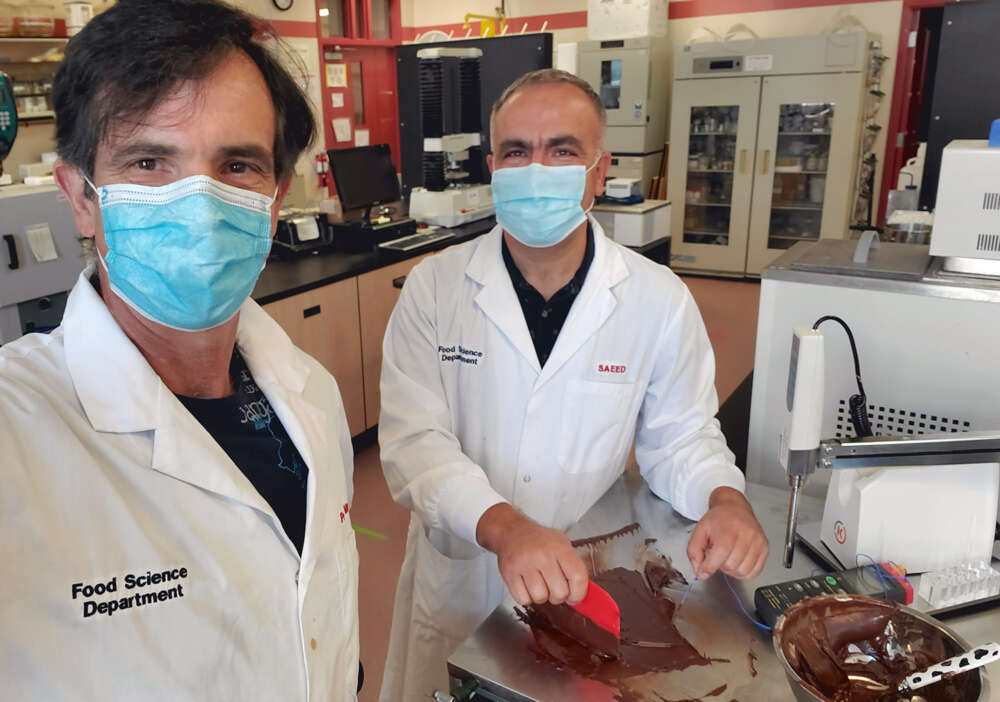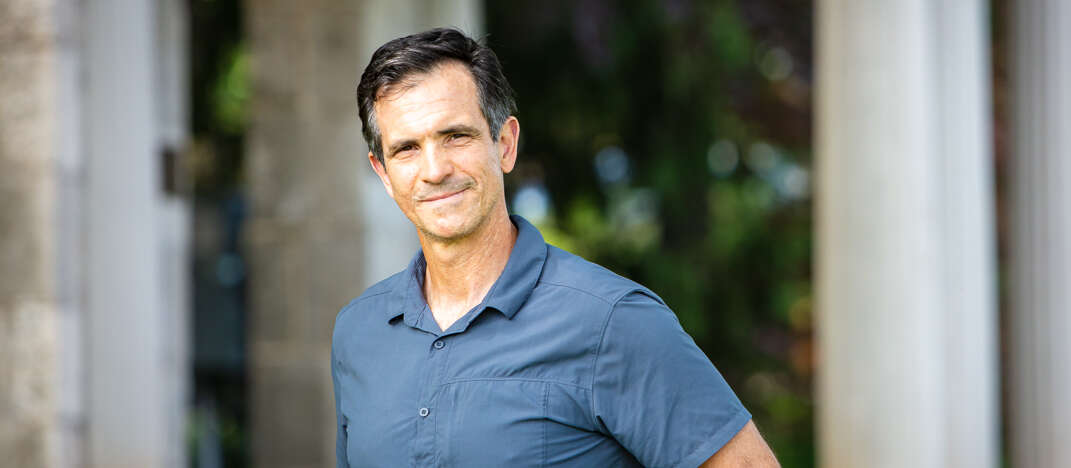A long-time food scientist at the University of Guelph whose discoveries in everything from trans fats to chocolate have helped improve human health and agri-food sustainability has been awarded one of Canada’s highest honours.
Dr. Alejandro Marangoni was named Dec. 29 as an Officer of the Order of Canada.
Marangoni was among 135 Canadians named in 2021 to the Order of Canada, including U of G professor emeritus Dr. Barry Smit and honorary degree recipient Ken Knox.
“Professor Marangoni’s richly deserved appointment as an Officer of the Order of Canada is tremendous recognition of his contributions to research and innovation in our country,” said Dr. Malcolm Campbell, vice-president (research).
“His innovative research and scholarly achievements are making impactful, real-world contributions to our understanding of the composition and production of food, and are improving the health of people and the planet. Dr. Marangoni provides an admirable example of how U of G researchers improve life here in Canada and worldwide.”
Dr. Gwen Chapman, provost and vice-president (academic), said, “Dr. Marangoni joins a select group of U of G faculty, alumni and associates who have received Canada’s highest honour. His research and teaching have benefited numerous students and colleagues in his department and college, and the many advances made in his lab have led to products and processes that make a difference in people’s lives.”
Since joining U of G as a professor in the Ontario Agricultural College in 1991, Marangoni has garnered national and international recognition as a leading expert in physical properties of food.

Earlier in 2021, a report from his lab about a better way to make smooth, creamy chocolate held No. 1 ranking for Nature Communications and drew media attention from around the globe.
“That was a media frenzy,” said Marangoni, who has regularly appeared in the popular press, commenting on topics ranging from concerns over palm oil in cattle feed to plant-based meats. Referring to COVID-19, he added, “I think people needed a good-news story. Everybody likes chocolate, let’s relax a little bit.”
The story also hinted at the mingled research and teaching strengths that he has honed over the past 30 years with students and other lab mates at U of G.
“We’ve focused on big issues,” said Marangoni, who holds the Canada Research Chair in Food, Health and Aging. “We have made fundamental contributions to the relation between the foods we eat and their impact on human health.”
Research has led to numerous food products and technologies
In an earlier major project, he studied ways to reduce saturated fats and to eliminate trans fats from numerous foods without losing functionality or other important characteristics. Both kinds of fats have been connected to higher risk of cardiovascular disease.
He discovered a way to turn liquid vegetable oils into solid fats, offering an alternative to palm oil, which is high in saturated fats. Besides its health implications, that project holds out environmental benefits. Felling of tropical forests for huge palm oil plantations, especially in Asia, destroys habitat and threatens biodiversity.
Health and sustainability also come together in his current research on plant-based meats, cheeses and other products. As with earlier work, Marangoni focuses on developing beneficial products without sacrificing taste and texture qualities desired by consumers.
“No matter how much you reduce greenhouse gas emissions, if it doesn’t taste good, the whole thing is out the window,” he said.
Given the size of the agri-food sector, he says, targeting food may have significant global warming payback.
“Agri-food has more greenhouse gas emissions combined than the oil and gas industry.”
Marangoni’s projects have also resulted in food products and technologies, such as oil gelators in baking shortening.
That connection to industry is vital for Marangoni, who arrived in Canada from Ecuador in the early 1980s with a scholarship to the Lester B. Pearson College of the Pacific, a United World College in Victoria, B.C. He studied chemistry at McGill University before completing a PhD in food science at U of G, where he worked with former professor Dr. David Stanley.
He had planned to return to South America. But he foresaw more opportunities to apply his research here in Canada.
“I wanted to do something more applied and contribute to something that more than just a few people would be interested in. With food and agriculture, you can contribute to health and jobs. Everybody has to eat.”
He’s worked with more than 100 graduate students, including many who pursued industry and academic careers.
Referring to the Order of Canada motto (“They desire a better country”), he said, “It’s really important for academics to have inspired industry people and students to put ideas forward.”
An avid mountaineer, Marangoni is also a dedicated teacher. He has taught courses ranging from graduate offerings in food chemistry to a first-year seminar on the science and history of chocolate. “The good thing about food science is that people can relate to it. They do it every day.”
Order of Canada appointees with U of G connections
Retired U of G geography professor Dr. Barry Smit was appointed to the Order of Canada for his contributions to understanding of climate change and for his mentorship of the next generation of climate change scientists. Smit was one of the first researchers in 1980 to study the effects of climate change. In 2013, he was named to the Order of Ontario. While at U of G, he held the Canada Research Chair in Global Environment Change for a decade and served on the United Nations Intergovernmental Panel on Climate Change.
Also appointed was Ken Knox, who received an honorary degree from U of G in 2011. A long-time provincial public servant, Knox was formerly Ontario’s deputy minister of energy, science and technology, and previously president and CEO of the Innovation Institute of Ontario.
Contact:
Dr. Alejandro Marangoni
amarango@uoguelph.ca
